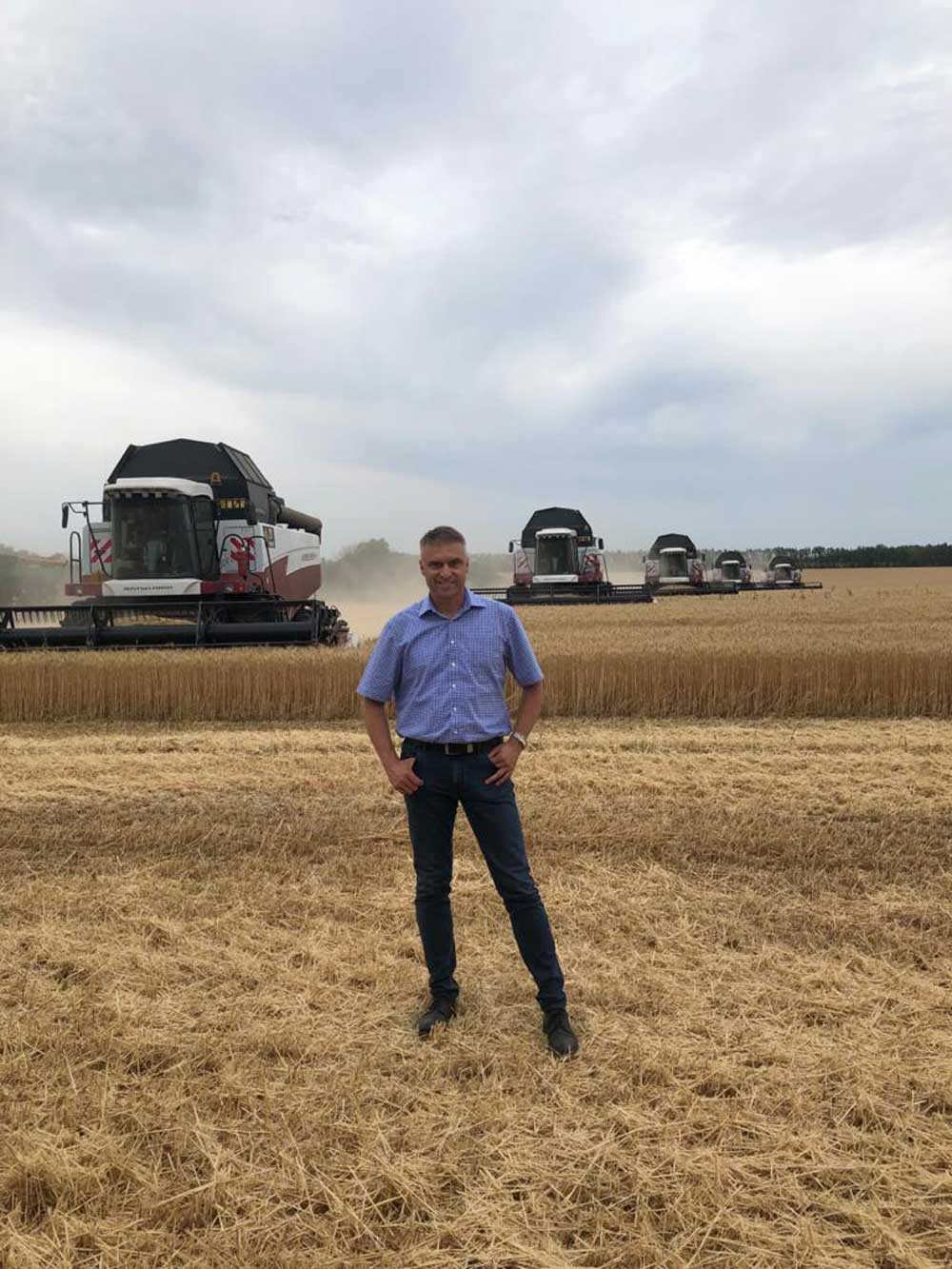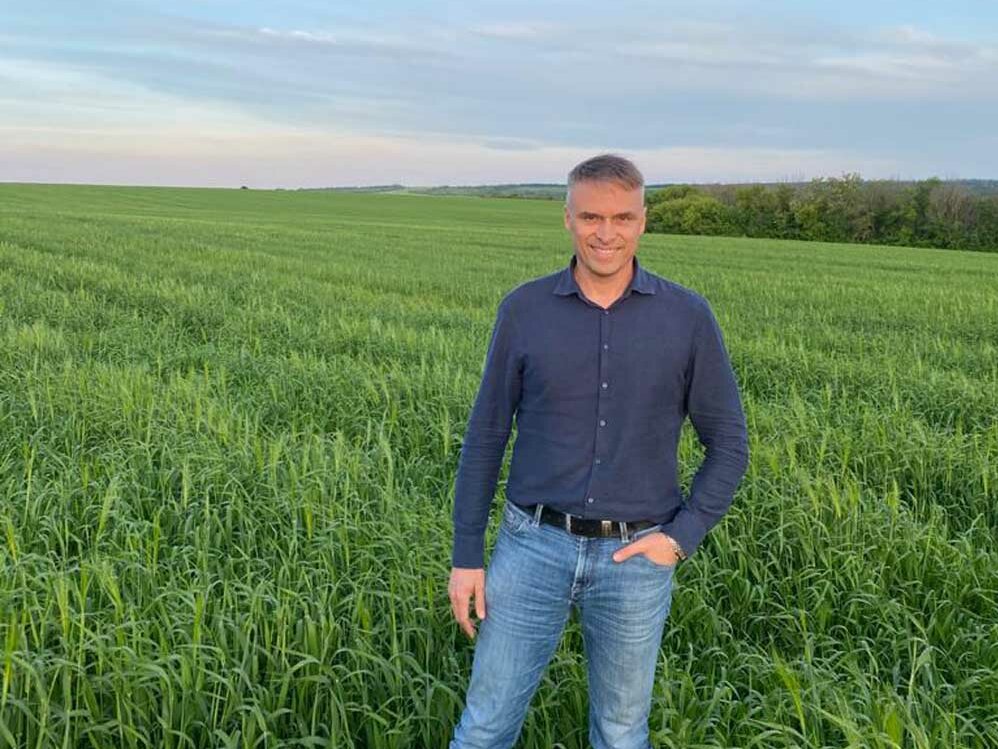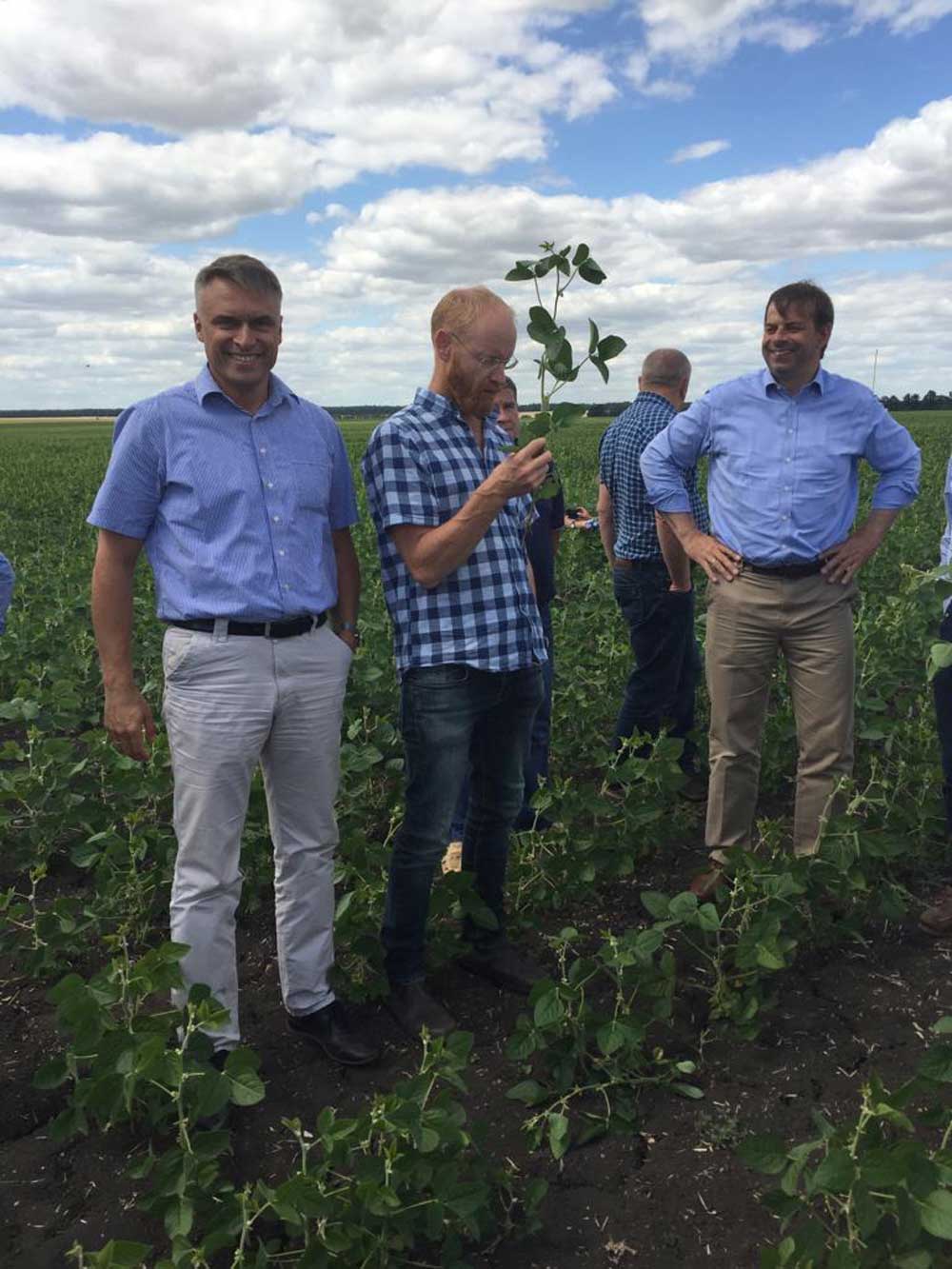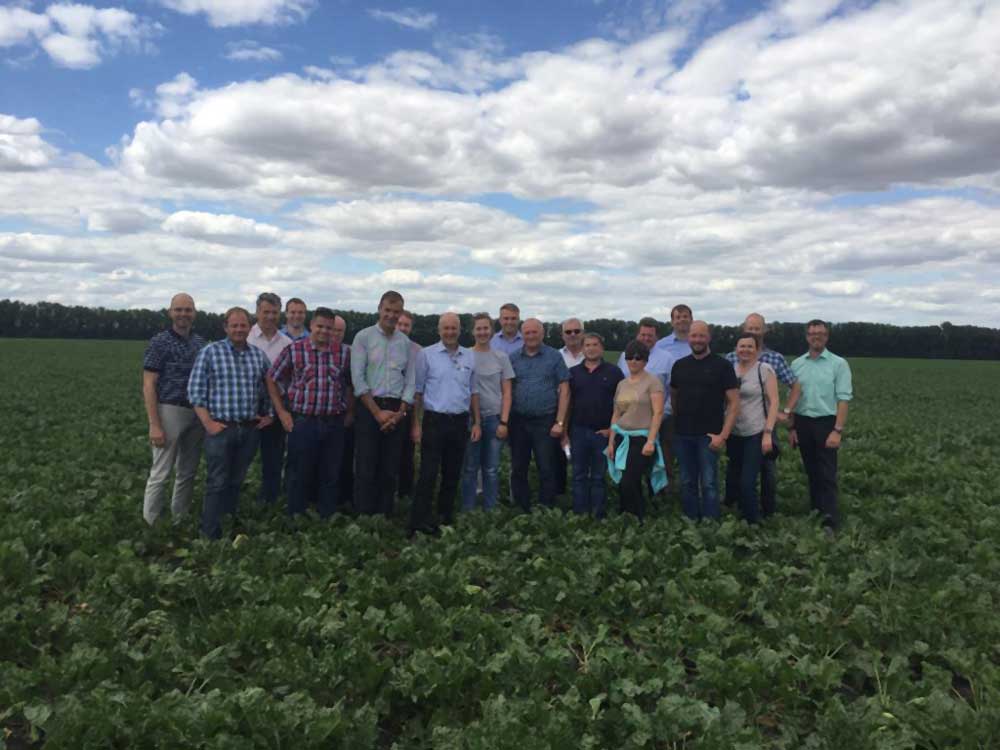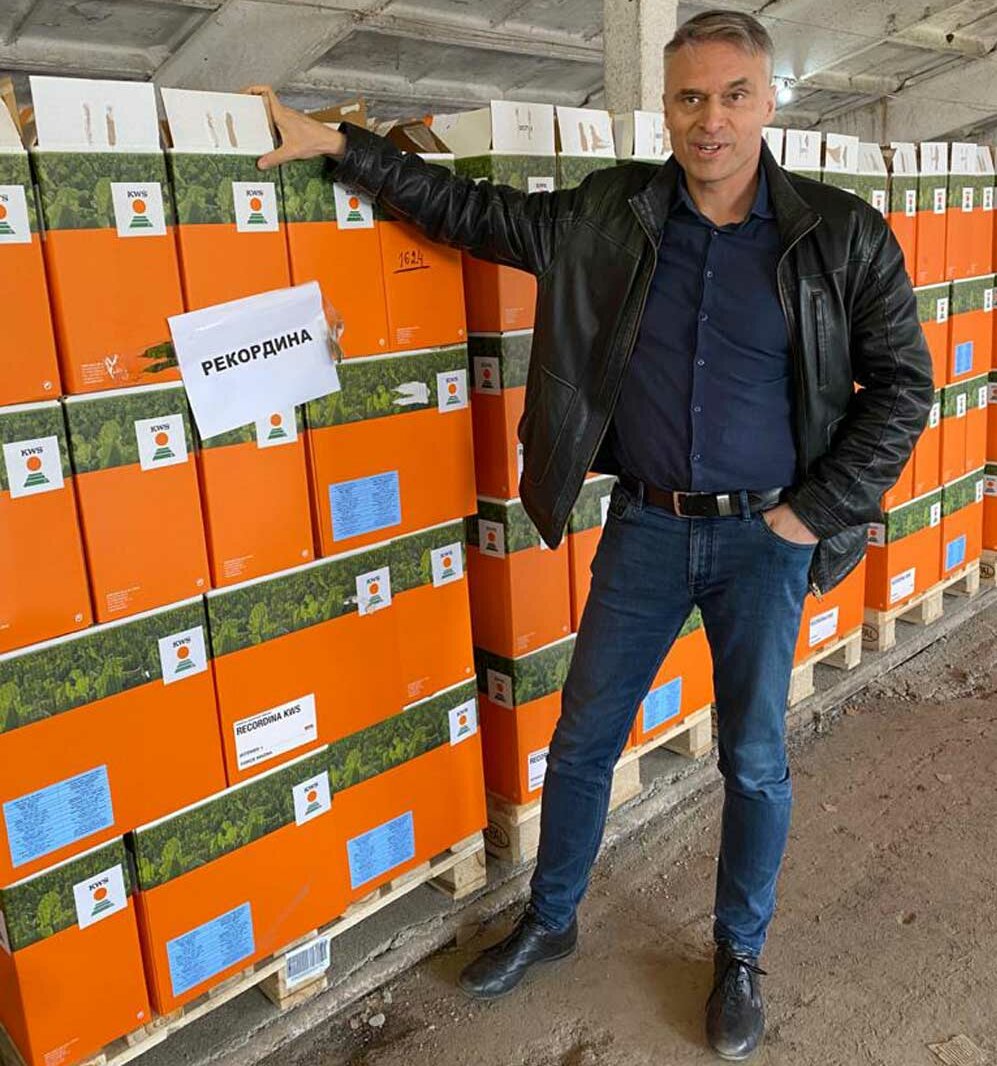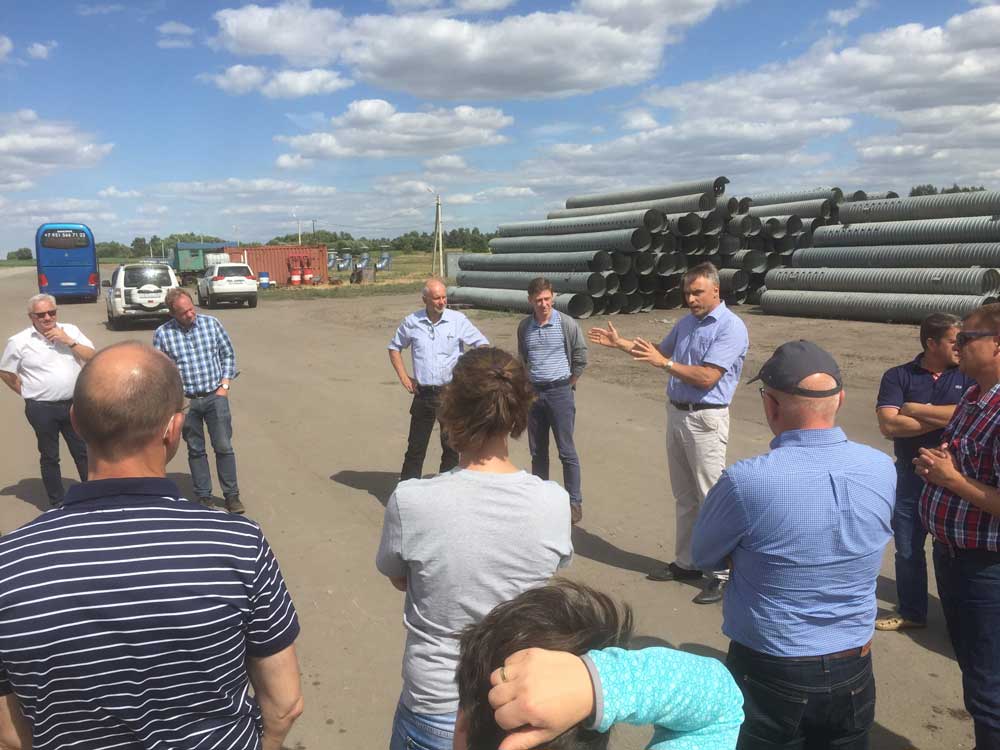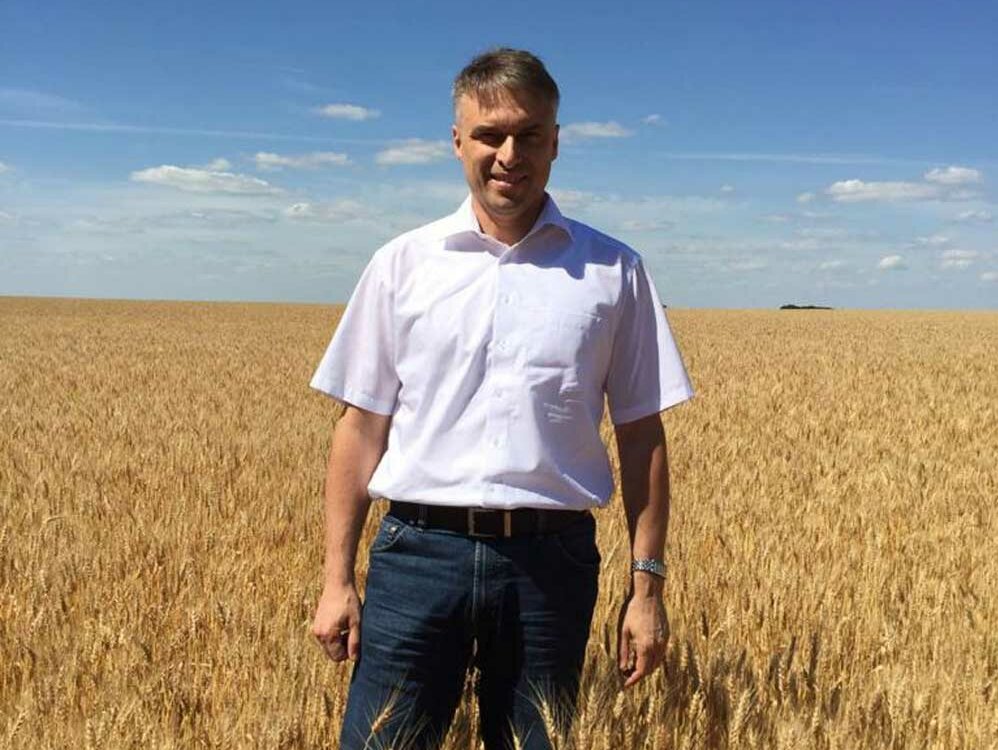Dr Alexej Ugarov - Manager of Agrokultura
Interview by Dr Olga Hunger, DLG
Dr Alexej Ugarov is a Russian farm management expert who also studied agricultural science in Germany before working for concerns KWS and Südzucker. Now he manages a very large area of farmland some 500 km southeast of Moscow. His membership of the DLG gives him continual access to important information on developments in agricultural research and farm business management, he says.
Dr Ugarov, please tell us about your educational and professional background - and how you came to your latest position. Also, you have good connections with Germany. How did these come about?
First of all, my family, my education and much of my professional career all centre on Germany. I was born and raised in Russia and studied in Moscow but also for some semesters in the former East Germany (DDR) where I not only met my future wife but also established contacts in the then West Germany (BRD), which in turn resulted in my studying for a doctorate in farm business management under professors Reisch and Zeddies at Hohenheim University.
My wife and I have a family of four and these children are now grown up and live and study in Russia and Germany, another link that keeps me in contact with the latter country. After my doctorate I started work in Germany, spending 14 years with KWS helping to develop the seed company’s business in Eastern Europe. Afterwards, I worked in Russia for the Südzucker AG that had then big business plans for eastern Europe. Unfortunately, these had to be put on ice because of political changes and difficulties in the sugar market. Despite this, I returned to Russia and six years ago took over management of agricultural holding Agrokultura in the Voronesch oblast. Initially, the business covered 80,000 ha. First moves included buying a further 40,000 ha and two grain elevators.
The company Agrokultura belongs to the Prodimex Group through the participation of Igor Khudolormov. Because the Agrokultura business developed relatively well, the main shareholder of the Prodimex Group, offered me the management of a proportion of the enterprise in Voronesch and Tambov as a large regional sub-holding. This took place in May last year so that now we’ve reached a total of 400,000 ha. Main crops are: 85,000 ha of sugar beet as strategic and most important crop for us as we are vertically integrated into the holding Prodimex, other crops are winter and spring wheat, spring barley, soya, sunflower and corn. The enterprise is a private business belonging to a few shareholders.
What are the main challenges in managing this size of farm business?
Making the right decisions so that these entail as little risk as possible of errors further down the line. The larger the enterprise, the more serious are errors in decision making. To ease management, we’ve been amalgamating several separate businesses and introducing new management and finance software: a difficult task that will take some years. It entails reorganisation and standardisation of three separate systems. The difficulty here is that we feel we must respect the individual history and culture of each enterprise but still bring them together under one efficient management. The complexity and size of the task in terms of production and finance involves many different locations and crops, differing storage organisation and application of available labour and machinery. In this respect, establishing an efficient communication system permitting functional information exchange between different farm businesses is crucial. We’re looking for digital solutions with development of our own GEO information system, again representing another new and very large challenge for us. This approach offers, we feel, the best way ahead when it comes to the bottom line, with the advantages of a uniform corporate structure increasing in importance in line with the size of the business. This applies to German enterprises just as much as Russian ones.
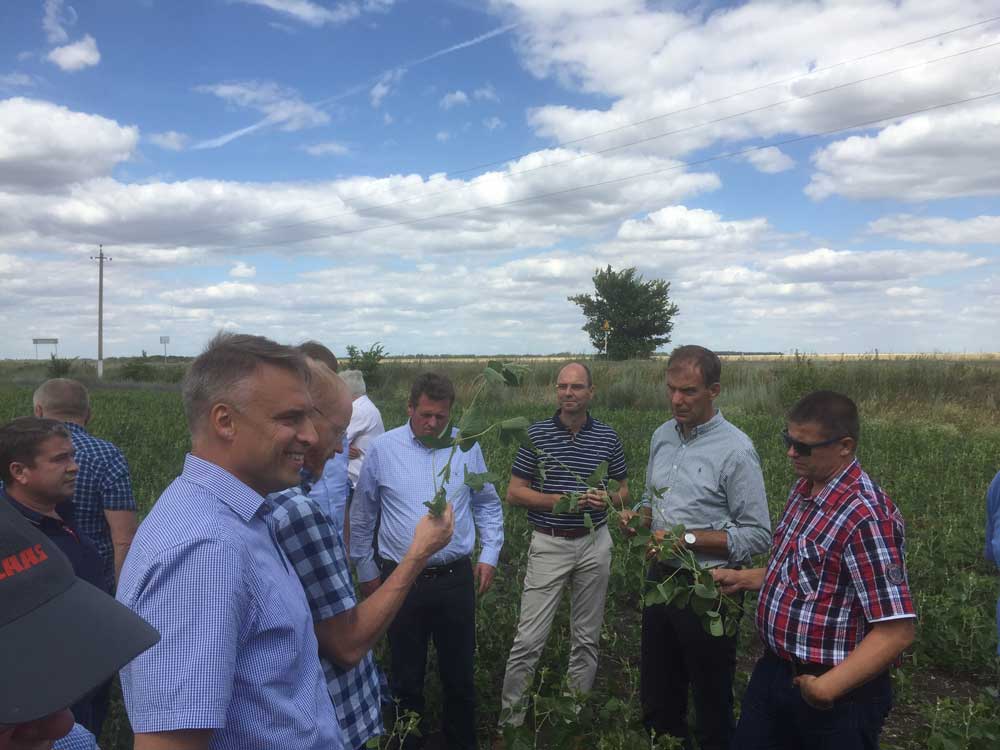
What other similarities do agricultural businesses share in Russia and Germany, or other EU countries?
The most important influential factor that they all share is the challenge of dealing with continually changing environment protection requirements. Naturally, production conditions within agriculture have never been particularly stable. This brings its own risks but continually dealing with new challenges can also be exhilarating.
Another similarity is that most farmers specialise in producing a product that’s important for export. Such products include cereals, above all wheat, barley, soybeans and other agricultural products marketed worldwide. In this way, we are all dependent on world market prices.
We also share a susceptibility to political intervention. Take GMOs, for example. As in Europe, farmers in Russia are denied opportunities of exploiting GMOs as production factor. Feed constituents represent exceptions here, and no one speaks about import stops for GM soya or soymeal. But at the same time the import and use of GM seed that could bring farmers numerous advantages is forbidden. Seen in a global context, this is a disadvantage shared by Russian and EU farmers, although this restrictive treatment concerning GMOs is welcomed by many consumers, at least in Russia. The situation can be seen as disadvantageous for growers but hopefully includes advantages because it means we are in a position to offer GM-free products that continue to be in demand. Here’s where careful advantage can be taken from political measures. With consumer health concerns in mind. If one wants to establish a GMO-free market policy, then one should restrict imports of GMO-containing finished products and not simply forbid GMO use in one’s own agricultural sector. These are the themes I see occupying the thoughts of farmers in Russia, as well as their colleagues in the EU.
Also topical in Russia are environment protection rules and regulations. Here though, we enjoy the advantages of larger scale operations and often very fertile soils. Ours is a very big country with the result that environmental problems associated with pesticide or fertiliser application appear less dramatic. However, water quality controls are tightening in Russia too, with regulations just as strict as Germany’s or the EU’s: further factors that unite farmers in both areas.
However, the administrative bureaucracy has not developed in Russia to the extent it has in Europe. I hope this remains the case! Because this is an advantage we have compared with the EU where nowadays a lot depends very much on the state administration bureaucracy. Earnings, subsidies, compensation for infrastructural disadvantages of up to 600 Euro per ha, a sum in turn dependent on the obeying of numerous regulations – all these factors mean an immense amount of applications and record keeping that turns the farmer into a bureaucrat. In this light, our market in Russia remains relatively unrestricted with comparatively low subsidies. We are still in a position of being able to develop our businesses through our own strengths and initiatives, and to create advantages from our scale of operations. We can farm more productively than farmers in Canada or the USA in terms of profit per hectare – and that without subsidies. At least so far. However, recent government interventions in pricing and export taxes for grain and sunflower seeds in Russia cause us concern.
Should these continue, we may have to ask for government aid to compensate farmers for at least some of the financial losses involved. I very much hope that these pricing regulations will be only temporary.
In your opinion, what role does international exchange of expertise and experience play within the sector?
In our company we have an international management team including, for example, a very experienced colleague from Sweden, Torbjörn Karlson who is responsible for production as COO, and a colleague from Germany, Svenja Hansen, as machinery manager.
Naturally we are interested in everything new in the world of agriculture. Especially attractive are developments in the areas of smart farming and precision farming, through to Big Data management. We are establishing modern production procedures. In precision farming, we are still not quite so advanced as some smaller, and therefore more easily managed, farms that are already practicing area specific seed and fertiliser application. Currently we are involved in establishing field specific production procedures. Our fields are between 50 and 100 ha. We are convinced that the investments in precision and smart farming will pay.
The international exchange within the agricultural sector is solidly based on the work of the DLG. As a member, I’m involved in the DLG Regional Working Group Eastern Europe. This gives me access to large amounts of information from colleagues based in Germany, Poland, Ukraine, Belarus and other countries. Other international DLG events I’m delighted to take part in include various special events as well as farm visits.
What themes do you discuss with your colleagues in the DLG Regional Working Group Eastern Europe?
On the last occasion we discussed digitalisation and field trial organisation. I am convinced that the DLG plays a very important role in developing themes such as those. Important in this respect is the independent information made available to farmers. As far as crop variety performance information is concerned, it’s difficult in Russia to access such independent data. Some large farming companies carry out their own variety trials but are reluctant to share the information collected. In our company we cooperate with multinationals such as Bayer, Syngenta and KWS, give such companies areas of our land for their trials while they in turn help us with our own field experiments by applying their high scientific standards. In this respect, we have a shortage of specialist knowledge. Our own crop scientists have long experience of large-scale production, but the management and organisation of crop trial plots is a speciality, requiring a different approach.
Dr Ugarov, you’ve mentioned that larger farm businesses are reluctant to disclose cropping information. Nevertheless, could you envisage establishing a network of on-farm crop trials?
There’s already stiff competition between large farm holdings in Russia. Last year, grain prices rose steeply and, currently, farmland sales meet a very active market. Here, only the fittest survive and this is why businesses are very reserved concerning publicising any production information. Agrarholdings would not offer trial results proactively. This would really have to form some sort of exchange that brought a recognisable advantage to their business.
What would you like to wish your fellow farmers for 2021?
I wish my colleagues a situation requiring as little protectionism as possible so that there’s an extremely limited requirement for politics becoming involved in the mechanisms of farm production. Also, that knowledge transfer is by no means reduced. This is my greatest wish.
I hope that the pandemic, or any other such influences, do not restrict this sort of communication. Contact and exchange must remain. We have so many interests and problems in common that can only be solved together.



